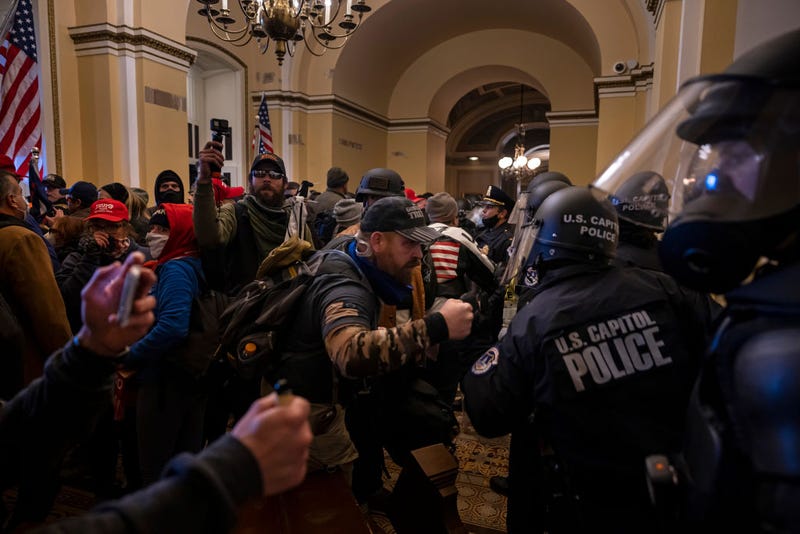
Can former President Donald Trump be held legally liable for the actions of his supporters just over one year ago, when they stormed the Capitol in Washington, D.C., following a rally where Trump perpetuated the falsehood that a 2020 Presidential election victory was stolen from him?
That’s the question that’s being decided by a federal judge this week.
Judge Amit Mehta said Monday during a court hearing that when determining culpability, it isn’t simply what Trump said that could be the determining factor. It’s what he didn’t say.
“The words are hard to walk back,” Mehta said. “You have an almost two-hour window where the President does not say, ‘Stop, get out of the Capitol. This is not what I wanted you to do.’”
“What do I do about the fact the President didn't denounce the conduct immediately ... and sent a tweet that arguably exacerbated things?” Mehta asked. “Isn't that, from a plausibility standpoint, that the President plausibly agreed with the conduct of the people inside the Capitol that day?”
While Mehta did not issue a ruling at the end of Monday’s hearing, which lasted nearly five hours, that particular line of questioning could prove telling when the judge eventually makes his decision, which serves as the first test in court for the viability of civil lawsuits against the former President.
When one of the lawyers defending Trump floated the suggestion that the members of the crowd who became violent simply misinterpreted what Trump asked of them, Mehta seemed skeptical of that defense.
“Wouldn't somebody who's a reasonable person say, ‘That's not what I meant?’” Mehta asked, offering that even Trump’s son and fellow defendant Donald Trump, Jr., sent a text of concern to the White House chief of staff before his father chose to issue a statement denouncing the violence.
Mehta also seemed to shoot down the idea that Trump cannot be held liable because his actions on January 6, and additionally in the call to Georgia election officials asking them to “find” votes, were part of his official duties as Commander-in-Chief.
“To say that a speech before Congress is the equivalent to a campaign trail stump speech” does not fall under the parameters of the Supreme Court’s decision on Presidential immunity, Mehta said.
The judge was also apoplectic when Trump’s lawyer Jesse Binnall singled out the former President’s admonishment that his supporters act “peacefully and patriotically.”
“You would have me ignore what [Trump] said in its entirety?” Mehta responded.
The three lawsuits surrounding the insurrection before Mehta were brought by Rep. Eric Swalwell (D-Ca.), 10 additional House Democrats, and a pair of Capitol Police officers – James Blassingame and Sidney Hemby – that look to hold Trump accountable for actions they believe he propagated by directing his supporters to storm the Capitol in service of nullifying through physical force an election that has been repeatedly judged to be legal.
“Defendant's followers, already primed by his months of inflammatory rhetoric, were spurred to direct action,” reads the lawsuit brought by the Capitol police officers. “Had Trump committed directly the conduct committed by his followers, it would have subjected Trump to direct liability.”
Trump and Trump Jr. are just two of the defendants in the far-reaching cases that also list Rep. Mo Brooks (R-Ala.), Rudy Giuliani, and a pair of far-right groups – the Proud Boys and the Oath Keepers – among others.
To date, Trump and his immediate advisors have yet to be charged criminally.
However, several members of the Proud Boys’ and Oath Keepers’ top leadership have been charged with conspiracy and have pled not guilty.


